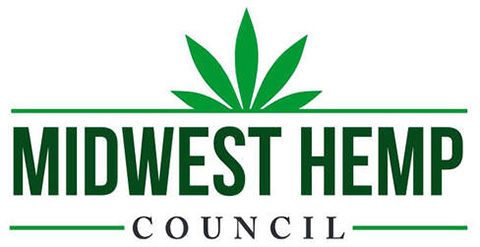
Despite being legalized across the U.S. four years ago with passage of the 2018 Farm Bill, development of the nation’s hemp sector remains hampered by federal inaction and a lack of regulatory guidelines. As Shawn Hauser, partner at Vicente Sederberg and co-chair of the law firm’s hemp and cannabinoids department, noted in a recent blog post, the hemp industry “has dealt with constantly changing rules, despite being in regulatory purgatory due to the snail-paced progress from the U.S. Food & Drug Administration (FDA).”
Hemp advocacy groups are closely monitoring what might be next for the hemp industry in 2022, especially in regard to potential moves by federal and state lawmakers and agencies. Hemp Benchmarks spoke with leaders of two national industry advocacy organizations about the prospects for hemp legislation and regulation in 2022.
What Hemp Legislation is in Play for 2022?
The primary hemp-related measures currently under consideration include:
- Hemp and Hemp-Derived CBD Consumer Protection and Market Stabilization Act of 2021 (H.R.841)
According to the official summary, this bill “allows the use of hemp, cannabidiol (i.e., CBD) derived from hemp, or any other ingredient derived from hemp in a dietary supplement, provided that the supplement meets other applicable requirements.” The FDA’s current position is that hemp-derived CBD products may not be sold as dietary supplements. H.R. 841 was introduced early in 2021, with advocates hopeful that it would gain traction and pass into law last year. However, it has languished to this point, for reasons we discuss below.
- CBD Product Safety Standardization Act of 2021 (H.R.6134)
According to Vicente Sederberg, this measure was introduced this past December by a bipartisan group of U.S. Representatives. It would “permit hemp-derived CBD to be included in food but would not affect the regulation of other hemp derivatives.” The law firm noted that, if passed, the measure “would also expressly direct the FDA to issue rules … establishing a maximum serving limit, conditions of intended use, and packaging and labeling requirements for food containing CBD.”
- Hemp Access and Consumer Safety Act (S.1698)
This bill would allow hemp and hemp-derived ingredients to be included in food and dietary supplements.
Will Hemp-CBD Legislation Be Passed into Law in 2022?
Some stakeholders are dubious about the prospects of hemp bills making progress in the current U.S. Congress. “To me all the action is going on at the state level, because [the states] are dealing with this, and I don’t think the federal government is really doing anything,” Michael Correia, Director of Government Relations at the National Cannabis Industry Association (NCIA), told Hemp Benchmarks.
Jonathan Miller, General Counsel for the U.S. Hemp Roundtable (USHRT), has a more optimistic outlook for federal hemp bills in 2022. He is hopeful that H.R. 841, and possibly other hemp-related measures, could be passed into law by the current Congress. Miller noted, “There is no real organized opposition to [H.R. 841]; no groups are lobbying against it.”
Somewhat surprisingly, Miller also said the recently-announced retirement of Ed Perlmutter, the U.S. Representative from Colorado who has championed the SAFE Banking Act, could end up being a potential boost to the effort to pass that measure. The SAFE Banking Act would prohibit federal banking regulators from penalizing depository institutions for providing banking services to legitimate cannabis-related businesses. It has been passed by the House on several occasions in prior years, but has not gained traction in the Senate. When asked if Perlmutter stepping down might be a blow to passing cannabis banking reform, Miller stated he is hopeful that the well-liked representative’s retirement could be a benefit to the effort, postulating that fellow lawmakers may want to secure a “win for Ed” before he leaves office.
Miller sees regulating CBD and SAFE Banking as “good bipartisan wins” for lawmakers to tout to their constituents ahead of the midterm elections that will occur later this year. He also pointed out that the Republican party may very well gain a majority in the House of Representatives, and possibly the Senate as well, which could motivate Democrats to push to pass popular measures in an effort to retain their current majorities.
Obstacles to the Passage of Hemp & Cannabis Legislation
If H.R. 841 and SAFE Banking represent good political opportunities for lawmakers of all stripes, then why did neither bill get passed into law last year? According to Miller, the lack of action on H.R. 841 in 2021 was due to COVID-19, as well as the prolonged negotiations surrounding the infrastructure and budget reconciliation bills, “issues that completely took over Congress and crowded out” other initiatives.
As noted above, SAFE Banking has been passed by the House several times, but has not gained traction in the U.S. Senate. It appears that the bipartisan support for the measure in the House has to this point been negated by bipartisan opposition in the Senate, though each party’s Senate delegation reportedly has their own separate reasons for not moving on cannabis banking reform.
NCIA’s Correia observed that most legal cannabis markets and areas where hemp products are more normalized tend to be Democratic-majority states, especially in the Northeast and West regions of the country. “You don’t really have legal ‘red’ [Republican-majority] states in the South, where a lot of the Republican delegations are, or the Midwest … we’re just starting to see some of that now.” He believes that, until the remaining stigmas about cannabis and hemp fade in those GOP-majority states, to the point where Republicans “can embrace” such measures, that there will not be enough support on Capitol Hill for those bills to move forward.
It is worth noting that Mitch McConnell, the head of the Republican Senate delegation, is generally supportive of hemp measures, but is not in favor of legislation related to liberalizing marijuana laws. For example, McConnell supported hemp’s legalization in the 2018 Farm Bill, but declined to bring the SAFE Banking Act to the Senate floor for a vote in 2019, when he was majority leader in the chamber.
In the current Congress, however, Democrats hold a slim majority in the Senate by virtue of Vice President Kamala Harris’ tie-breaking vote, yet the individual hemp and cannabis measures under discussion have still not moved forward. Jonathan Miller attributed the lack of action by Senate Democrats on SAFE Banking last year – it was removed from the National Defense Authorization Act in the Senate after again passing the House – to the “Schumer / Booker philosophy” of passing comprehensive cannabis reform all at once, rather than piecemeal in individual bills. Current Democratic Senate majority leader Chuck Schumer of New York and Senator Cory Booker of New Jersey have both indicated that passing cannabis banking reform without full legalization and associated remedies for communities harmed by the War on Drugs is a non-starter.
More broadly, Miller pointed to general impediments to passing legislation – such as inertia and polarization in Congress – as some of the main obstacles blocking hemp bills from advancing. “The factors we are fighting have nothing to do with the issues,” he said.
Federal Agencies May Institute Their Own Hemp Reforms in 2022
In terms of the federal government, Michael Correia noted that hemp issues can be brought up and addressed on several different levels, including via the official bureaucracy, through regulators and agencies. However, industry stakeholders have been pushing the legislative route due to lack of action on the part of some federal agencies, particularly the FDA.
Miller observed that the first year of President Joe Biden’s term passed without the confirmation of a commissioner to oversee FDA. However, in November 2021, Biden nominated Dr. Robert Califf to lead the agency. Califf previously served as FDA commissioner under President Barack Obama and is expected to be confirmed by the Senate. Miller hopes that Califf “will move the ball forward” on regulating CBD. He also called attention to a recent study showing that CBD does not cause liver toxicity, which addresses a major issue that the FDA has cited in its declination to allow the compound to be marketed as a dietary supplement or added to foods.
There are also hopes that the U.S. Department of Agriculture (USDA) will continue to work on initiatives to stabilize and develop the hemp market. Miller anticipates that the department will get important work done on hemp in 2022, particularly in the realms of sustainability and the fiber sector. In regard to the latter, he said that USDA research and funding to help develop consistency and standardization is needed for the hemp fiber sector to thrive. Miller stated that defined standards around sustainability are also necessary to “avoid greenwashing” and ensure that hemp is actually being produced sustainably, rather than assuming sustainable production just because of hemp’s reputation as an environmentally-friendly crop.
States Take the Lead on CBD, Delta-8 THC
With the possibility that Congress may not act on hemp legislation again in 2022, the NCIA’s Correia highlighted state-level reforms: “The states are forced to deal with it. Cannabis and hemp is legal in a lot of these states. You’re starting to see states pushing back on delta-8 [THC] or regulating it out. But it hasn’t really made it up to the federal level just yet.”
An example of the state-federal break regarding hemp took place this past October, when California Governor Gavin Newsom signed into law Assembly Bill (AB)-45, which legalized and implemented regulations for hemp-derived products in the state. Many states have followed the FDA’s guidance on hemp and hemp cannabinoids since passage of the 2018 Farm Bill. However, as the Goodwin Proctor law firm noted on its website, AB-45 breaks with the FDA by amending California’s Food, Drug, and Cosmetic Law, “so that dietary supplements, food, beverages, cosmetics, and pet food are not considered adulterated solely because of the inclusion of hemp or its derivatives.”
Jonathan Miller said that AB-45 “should” create urgency for Congress to act on CBD. With dozens of states passing separate laws and rules for CBD and other hemp-derived products, he noted that the patchwork of regulations “is becoming complex and burdensome for businesses.”
On the topic of delta-8 THC, Miller agreed with Correia that, in 2022, “the real action is in the states.” He reiterated the USHRT’s position that intoxicating hemp-derived cannabinoids should not be banned entirely, but instead regulated under the umbrella of adult use cannabis.
Overcoming a Political and Generational Divide
Correia noted that recent polling has proven that the American public “is way far in front of federal officials” when it comes to its support of overall cannabis legalization, especially for medicinal use. The problem, he said, is that the majority of U.S. Senators tend to be older. “They wrote the laws for the War on Drugs [in the 1970s and 1980s], and it’s hard for them to snap their fingers and say, ‘things have to change,’” he added. “The new, up-and-coming members are more supportive [of cannabis reforms] versus the older ones.”
Comments from Miller also raised the challenge of a lack of general awareness and familiarity with new and complex issues around cannabis and hemp. He acknowledged that a topic like delta-8 THC and its regulation is a prominent issue for those “in the know,” but conceded “your average [member of Congress] and their staff probably don’t know what delta-8 THC is.” Such divides highlight the importance of industry engagement with lawmakers to educate them on novel issues.
Looking Beyond 2022
Hemp sector stakeholders have learned the hard way that building new industries from scratch can be an extended, years-long process. On top of the general difficulty of standing up new supply chains and markets, continued uncertainty surrounding the future course of the COVID-19 pandemic and its myriad impacts on the U.S. and the world mean that hemp measures may again be pushed to the side in 2022.
Whether or not the bills noted above are passed into law this year, advocates and legislators are continuing to work to implement changes to the current hemp regulatory regime that will allow the industry to grow and thrive. For example, Miller highlighted the USHRT’s work with Representative Chellie Pingree of Maine on the Hemp Advancement Act, which has yet to be introduced.
Among other items, the prospective bill would increase the allowed THC potency of hemp crops in the field to 1%, while limiting finished hemp products to containing 0.3% total of all forms of THC, including delta-8 and similar compounds, thereby addressing simultaneously the issues of farmers losing crops that only go slightly “hot” and the unrestricted sale of intoxicating hemp-derived cannabinoids. Miller said that if the Hemp Advancement Act is not passed this year, it is likely to be included in the 2023 Farm Bill.
Related Articles:
- Where Does the Hemp Industry Stand as 2021 Concludes? (December 29, 2021)
- Analysis of Recent Trends in Sales of Hemp-Derived THC & CBD (December 1, 2021)
- What Obstacles Must the Hemp Fiber Industry Overcome to Develop and Expand? (October 20, 2021)
- What’s the Status of Hemp-CBD Legislation in Congress? (August 4, 2021)


